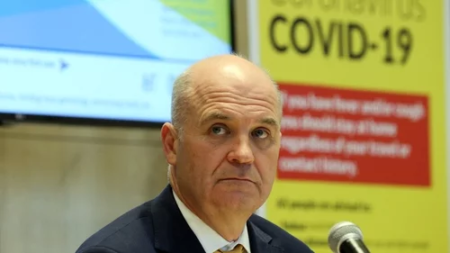5 May 2020
By Bryan Smyth
bryan@TheCork.ie
The Health Protection Surveillance Centre has today been informed that a total of 23 people with COVID-19 have been reported as passing away nationally in the past 24 hours.
There have now been a total 1,339* COVID-19 related deaths in Ireland.
There is now a total of 21,983 confirmed cases of COVID-19 in Ireland.
The HSE is working to identify any contacts the patients may have had to provide them with information and advice to prevent further spread.
Today’s data from the HPSC reveals that of the 22,000 approx confirmed cases (running total) of the virus so far:
· 58% are female and 42% are male
· the median age of confirmed cases is 49 years
· 2,879 cases (13%) have been hospitalised
· Of those hospitalised, 369 cases have been admitted to ICU
· 6,293 cases are associated with healthcare workers
· Dublin has the highest number of cases at 10,670 (49% of all cases) followed by Kildare with 1,280 cases (6%) and then Cork with 1,177 cases (5%)
· Of those for whom transmission status is known: community transmission accounts for 62%, close contact accounts for 35%, travel abroad accounts for 3%
As of midnight Monday 4 May, 214,761 tests have been carried out. Over the past week, 61,707 tests were carried out and of these 2,280 were positive, giving a positivity rate of 3.7%.
Dr. Cillian De Gascun, Chair of the NPHET Expert Advisory Group, said;
“The positivity rate reducing is a good sign. Combined with the high level of testing we are now undertaking, this gives us confidence that we are on a path towards suppression of the disease.”
The National Public Health Emergency Team met today (Tuesday 5 May) to continue its ongoing review of Ireland’s response to COVID-19.
Dr. Tony Holohan, Chief Medical Officer, Department of Health, said:
“As Ireland works to ease restrictions, it is crucial that we preserve the progress our country has made in recent weeks.
“This is a highly infectious disease. It thrives in crowds. It has the potential to rapidly spread to levels that our health service will find difficult to respond to.
“While we plan how to safely emerge from recent restrictions, none of us should forget that the virus is still in our community. Those who get infected have the same risk of serious illness as they did at the beginning of this pandemic.”


